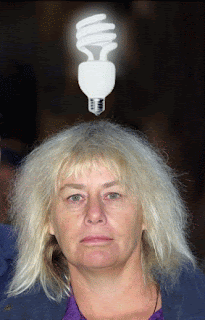Pages
▼
Monday, March 9, 2009
Warning on eco-tourism assurances
Qualmark NZ's compulsive enviro-green criteria was slipped into its Accommodation Grading system for motels last year.
This allegedly took the Motel Association of NZ (MANZ) by surprise. After a bit of fluster and navel gazing, MANZ came up with the industry position that opposed Qualmark by calling for the enviro-green criteria to be separated from the Accommodation Grading system.
We agree with the position that MANZ has taken!
Not only has Qualmark gained the wrath of the motel industry, but ironically it is exposing itself to the claim by green evangelists that the creep of compulsive environmentalism within the tourism industry has not gone far enough!
By NICK CHURCHOUSE
The Dominion Post
09/03/2009
New Zealand needs to be careful with "dangerous" promises in tourism marketing campaigns, eco-travel experts warn.
Bruce Poon Tip, founder of leading adventure travel company Gap Adventures, said as New Zealand consciously marketed itself as a natural environment, it needed to be careful to deliver that experience.
"As the world has come to recognise the attraction of the natural destinations, those marketing themselves as such have come under a stronger microscope."
The cost of failing the increasing scrutiny was severe. "You'll only get that visitor once," Mr Poon Tip said.
Tourism New Zealand launched a $300,000 marketing campaign recently with the tagline "100% Assurance", highlighting the national Qualmark quality accreditation system, which included an environmental impact rating called Qualmark Green.
Mr Poon Tip said the marketing focus needed to be backed up by support for tourism operators.
"Accreditation systems just put the onus on the operator. Governments and tourism boards have to take the time to follow through, right through to the operator, not just in the marketing."
When Qualmark Green was launched last year, chief executive Geoff Penrose confirmed tourism operators would have to work hard to get a Qualmark Green rating. "It won't be easy to get."
Mr Poon Tip said environmental accreditation systems confused tourists because there were so many, and a number of them were simply money spinners with no actual merit.
Tourism New Zealand chief executive George Hickton said Qualmark differed from other tourism quality assurance systems in that it was a national framework.
The idea for Qualmark Green was to extend the established Qualmark framework to "push operators into a better environmental space" and keep up with a growing demand for environmental credibility of tourism operators.
"Bit by bit I think we are getting ahead of the game."
New Zealand won the Virgin Holidays Responsible Travel award in November, beating 1900 other contenders.
Mr Hickton said the Qualmark Green programme contributed largely to that success.
But it was not yet automatically synonymous with high environmental standards. "That's a wee way down the track." Mr Poon Tip said education for tourism businesses was vital to ensure New Zealand's "world-class" reputation was not ruined by tourists' unfulfilled expectations.
"The tourist board that puts New Zealand up there in the first place has to go offer education to the operators.
"It's an easy fix for a country as small as New Zealand."
Auckland University of Technology tourism research institute director Simon Milne said Qualmark Green had yet to be proven effective.
"There is a growing scepticism amongst the industry and consumers that these things really are just marketing tools, rather than serious ways to improve environmental performance."
Ramping up marketing with a "100% Assurance" campaign was dangerous, particularly when travellers were coming from places with environmental expectations beyond the norm in New Zealand, such as not being able to buy plastic bags at all," Mr Milne said.
"There are many aspects of business practice such as recycling and composting that we [New Zealand] are some way behind on.
"It might be a catchy slogan but it might raise false expectations."
Source: Click HERE

